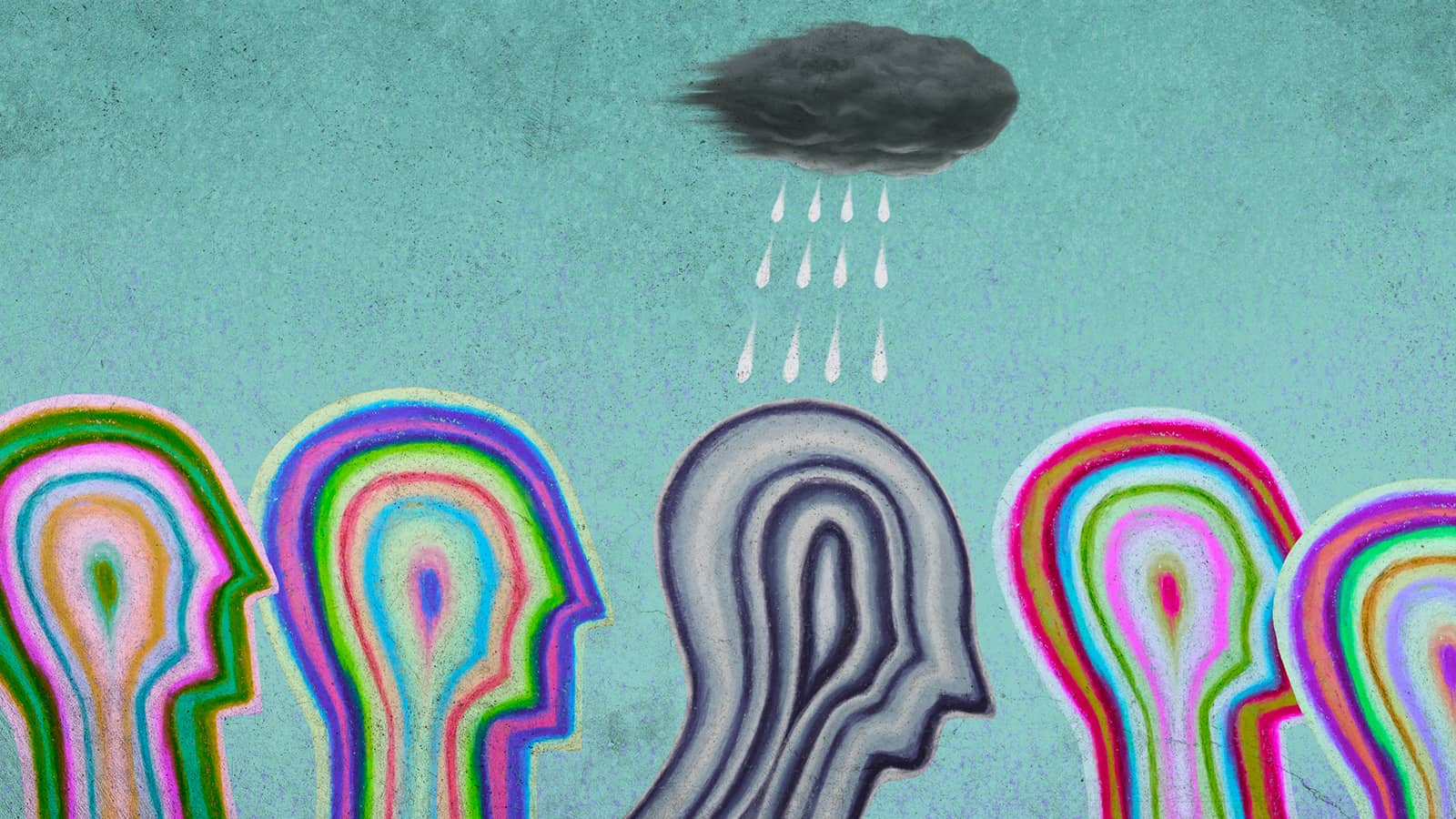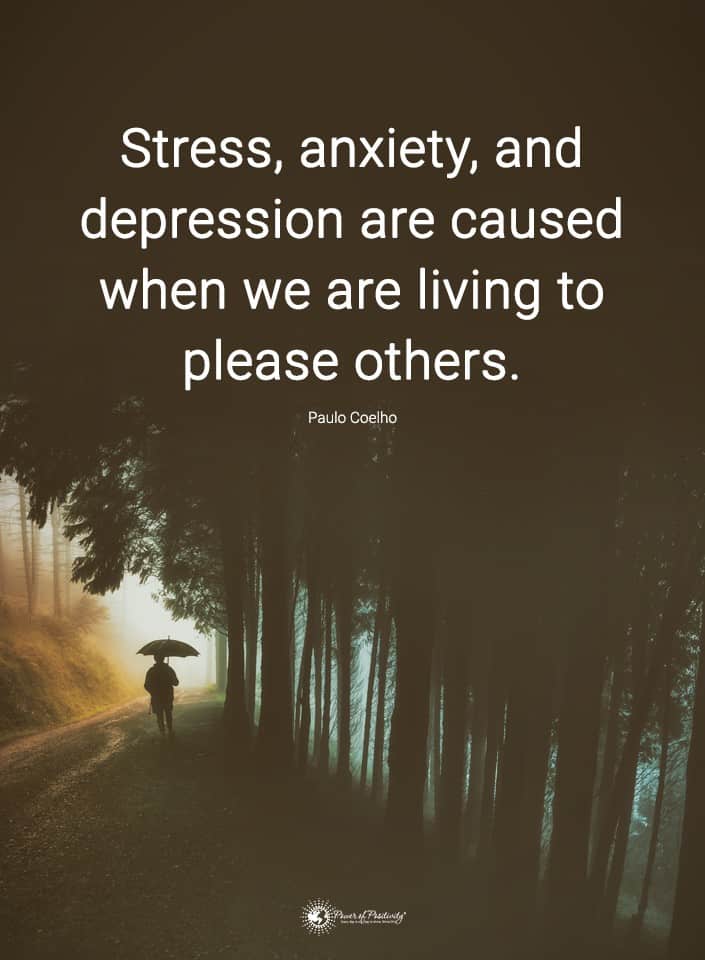Stress is a common grievance in today’s society. Everyone has loads of responsibilities they have to handle and not enough time to relax. Because of this lack of time, people tend to throw their issues under the rug. Pretend you don’t have any problems, keep working, and things will turn around somehow. Or at least that’s what you learn to tell yourself.
But that’s neither true nor sustainable. And even if you learn to spot the most common signs of stress, many symptoms can still go under the radar. One day, you don’t get enough sleep. But you don’t think anything of it. The next, you eat less than you ate a day before. Again, you don’t think anything of it. And then something else unnoticeable happens until dozens of issues pile up.
Your health deteriorates, energy levels go down, and happiness declines. And you don’t have the time to deal with that, so you hide everything. You pretend everything’s fine, and you put on a happy face. But, if left untreated, stress can take over your life. It’s essential to learn about the hidden signs of stress so you can help the people you know or even yourself.
What Causes Stress?
Stress is the emotion you feel when your body responds to external stimuli perceived as threats. Similarly, you feel stressed when under a lot of pressure or demand. Your body is aiming to go into the “fight-or-flight” response. In this state, you are more focused and alert. It gives you the edge you need to get through difficult situations. For example, stress will kick in when you have to present something in front of many people.

But this stress can help you concentrate. In practice, stress might get out of hand from time to time. So, it’s not uncommon to develop chronic stress disorders if you keep putting yourself in stressful situations. Stressors are the things that trigger this reaction. There are many everyday stressors, like a busy work schedule. But these stressors are usually subjective. Some people thrive when they are always on the move. Others need time to recharge and relax after a day of work.
The Internal Signs of Stress
And not all stressors are external. Some are self-generated, caused by worrying, irrationality, perfectionism, and more. These stressors trigger the hypothalamus to signal the adrenal glands to secrete cortisol. This hormone is the primary stress hormone, and it can control mood and concentration. Cortisol is significant in small quantities from time to time.
It mainly increases your heart rate and derails some functions if the body doesn’t think it needs them. For example, if you must run for your life, cortisol can shut down your digestive and reproductive systems until you’re out of danger. This is great for conserving your resources for a short while. But in the long-term, too much stress, thus too much cortisol, leads to health issues. Your body functions can be derailed, and you can develop anxiety, depression, heart issues, memory and concentration issues, and more.
When someone is stressed, you need to try to calm them down. And the first step is to notice the signs of stress. It’s safe to say that someone who seems more agitated or anxious is probably stressed. But what are other signs of stress that you might not be as aware of?
3 Signs of Stress Most People Hide from the World
Watch for these hidden signs of stress in your life.
1. Your Eating Patterns Change
When you are stressed, the cortisol secreted can change your appetite. Cortisol, in high quantities, can make you crave sugary, salty, or fatty foods. All of these foods are instant fuel for your body. Because stress triggers the fight-or-flight response, it makes sense that your brain wants to fuel your body wholly.
Not only do you crave these high-calorie foods when you are stressed, you even eat a larger quantity than you usually eat. You may know this cycle as stress-eating. Most people don’t think much about it. But it’s clear that your stress levels are out of control.
Even though the biological reaction is to eat when stressed, some people get so caught up that they forget to eat. This is more of a psychological response. The hunger cues still exist. Your body still tells you to eat. But you can get so focused on the stress that you forget to listen to your body. So, you might even eat less than what you need.
Stress also affects metabolism. One study shows that people surrounded by more stressors in a 24-hour span will burn around a hundred fewer calories. This is especially true if you eat high-fat meals. Stressed people who eat high-fat foods will gain some pounds over a few months.
If you notice someone overeating or eating too little in your life, make sure you check in on them. These eating patterns can indicate eating disorders, but that’s not always the cause. More often than not, you’ll find that the reason for the change in eating patterns is stress.
2. Your Sleep Schedule Is All Over the Place
Chronic stress affects the nervous system, as it keeps it on alert for longer. Being on the lookout all the time will interfere with your sleep schedule. It can delay the onset of sleep. And even if it doesn’t, it causes rapid, anxious thoughts to form at night. These thoughts can easily keep you awake and disrupt the quality of your sleep.
Sometimes, it’s not even stress that causes a lack of sleep. Sometimes, you become more stressed because you can’t sleep. But no matter if stress is the cause or the effect, you still create a vicious cycle. A stressed person can’t sleep. A tired person experiences more stress. So, if you don’t rest, your stress levels stay up, which disallows you from getting good sleep.
But not all people get less sleep. Some people get too much, which makes them feel drowsy. Stress often links to depression, which can often lead to excessive tiredness. You feel like you can’t get out of bed. or oversleep. You might even sleep not to have to feel stressed or sad anymore. If this oversleeping comes from stress linked with depression, you need specialized help. So, if you know someone who oversleeps, help them go to therapy.
Maybe you are stressed, but you can still sleep the recommended seven to nine hours. In that case, stress might cause you to have weird dreams, affecting the quality of your sleep. These dreams are caused by negative and anxious thoughts when you go to bed. And, in many cases, weird dreams will cause you to wake up often or sleep lighter.
3. Stress Affects Your Memory
Stress is supposed to help you focus when you are in difficult situations. But that’s not always what it does. This primarily happens during times of stress. That’s because people have a more challenging time creating short-term memories. And it’s harder to turn those short-term memories into knowledge that you’ll remember in the long term. In a nutshell, it’s harder for you to learn when you are stressed. Additionally, you tend to gloss over details during these times. So, it’s harder to remember everything about a stressful event accurately.
This is only the case with acute or chronic stress. Conversely, moderate stress could improve your ability to learn. If your learning is directly related to your stressor, you’ll remember what you are learning better. For example, if you feel concerned about a math test, you’ll be able to learn math quite well. But it will be almost impossible for you to learn something unrelated, like literature.
Even memories can change because of stress. A memory is just remembering the last time you experienced a particular event. They aren’t entirely accurate portrayals of the past because every time you remember them, your experiences change the memory. And stress can make you vulnerable to believing false information about the past, which changes your memories.
It even makes it harder for the brain to reencode memories, so it’s easier to misremember things in the long run. You might also harm your memory and concentration due to a lack of sleep or deficient nutrition. So, if your stress causes you to sleep less, you won’t focus as you normally would. You will have trouble being present and understanding what’s going on around you. So, you won’t be in the best space of mind to understand and remember the events surrounding you.
If you see someone zoning out or have trouble recalling what just happened around them, that’s because they could have stress. Or, if they always seem to have difficulty remembering certain things, it’s probably because they are under a lot of pressure. In either case, they probably hide just how stressed they are and need a helping hand.
Final Thoughts on Signs of Stress Most People Hide from the World
Stress is a common problem in today’s society. It’s normal, and even beneficial, to feel a certain amount of stress. But many people struggle with chronic stress and know how to hide it. Because of how normalized stress has become, most people ignore it and pretend it’s not an issue. Still, stress can affect the body and the mind in noticeable ways from the outside.
People are aware of the common signs of stress, like its anxiety. But some signs of stress are less known. What most people hide about their stress is that it can affect everything, from their sleeping patterns to their diet and mental acuity. Stress makes people sleepless or sleeps worse, and it causes exhaustion and mood changes. The cortisol secreted by stress makes people crave sugary, salty, or fatty foods.
Because of this, stressed people can even gain weight in the long term. Although this seems counterintuitive, feeling too much stress affects your memory negatively. While you may have these hidden signs of stress, it’s good to know how to spot them. Then, you can help the people around you who also struggle with stress.




















